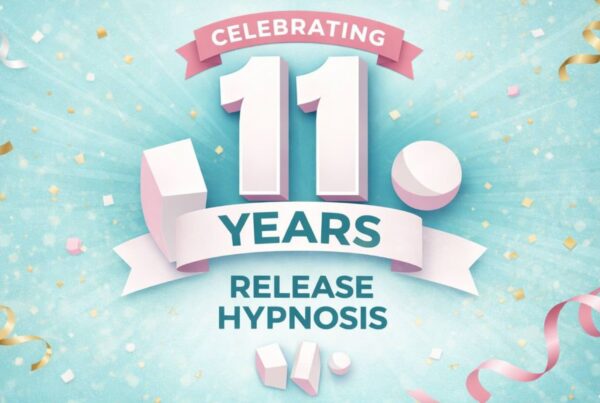The Importance of Acceptance in Mental Health
The importance of acceptance in maintaining mental health can certainly not be underplayed. Along with gratitude and self-compassion (future articles to come), acceptance is one of the key pillars in being able to let go of things that are outside of our control and bringing our focus to where it can best serve us.
In this article, we explore what is acceptance and how you can begin to cultivate acceptance more into your life.
What is Acceptance?
When you think of the word “acceptance”, you might imagine a serene yogi sitting cross-legged on a mountaintop, effortlessly letting go of all their worries and cares. But in reality, acceptance is a skill that can be practiced and cultivated by anyone, regardless of their level of experience with meditation or mindfulness.
So what exactly is acceptance? Simply put, it’s the willingness to acknowledge and embrace your thoughts, feelings, and experiences without judgement or resistance. This doesn’t mean that you have to like everything that happens to you or approve of every aspect of yourself, but it does mean that you’re willing to stop struggling against reality and start working with it instead.
I often work with people who truly struggle with the events and situations they find themselves in through their life. That struggle uses so much of their valuable energy and takes their focus away from what might truly matter. Through practicing acceptance, they’re able to drop that struggle with things that are outside of their control, and place their focus where it can be valuable.
The Benefits of Acceptance
Now that we’ve established what acceptance is, let’s take a closer look at why it’s so important for mental health. Here are just a few of the many benefits of cultivating acceptance:
Reduced Stress and Anxiety
I’ll frequently remind clients of the ‘control paradox’. The paradox is simply this; ‘the more you try to control what is outside of your control, the more out of control you become.’
The stress and anxiety associated with trying to fix or change a situation that is outside of their control can lead to so much mental anguish and discomfort.
When you’re constantly fighting against your thoughts and feelings, it can create a sense of tension and conflict within you.
But when you learn to accept them, you can release that tension and allow yourself to feel more relaxed and at ease.
This can be especially helpful for people who struggle with anxiety or panic attacks, as acceptance can help them to break the cycle of fear and worry that often accompanies these conditions.
Improved Relationships
Acceptance isn’t just about accepting yourself; it’s also about accepting others.
When you’re able to let go of judgement and criticism, you can approach your relationships with more compassion and understanding.
This can lead to greater intimacy and connection, as well as a deeper sense of empathy and kindness.
If we want our partner to accept us flaws and all, then we need to remember that our partner is flawed too – and that’s perfectly ok.
When you find that your ego is getting in the way of your communication with your partner, stop and ask yourself the question ‘what is happening for this person here?’
By doing that, you are stepping away from the thoughts and feelings of your own ego and the judgement it has raised, and moving more towards curiosity and empathy for your partner.
Greater Resilience
Life is full of ups and downs, and sometimes things don’t go the way we want them to.
But when you’re able to accept the things you can’t control, you become more resilient in the face of adversity.
This can help you bounce back from setbacks more quickly and effectively, and can also help you stay more grounded and centered during difficult times.
As cliched as it can be, the mantra ‘it is what it is’ can be very powerful here. It can remind you that this situation is the one you find yourself in, and that it too will pass.
We don’t struggle against it, or give the discomfort more power than it needs. Instead, we allow it to be and focus on what is within our control.
Improved Self-Esteem
Many of us have a tendency to beat ourselves up over our perceived flaws and imperfections.
But when you practice acceptance, you can learn to be kinder and more compassionate towards yourself.
This can help you to feel more confident and self-assured, and can also make it easier for you to make positive changes in your life.
How to Cultivate Acceptance
So now that you know why acceptance is so important, you might be wondering how you can start cultivating it in your own life. Here are a few tips to get you started:
Practice Mindfulness
Mindfulness is the practice of paying attention to the present moment without judgement. By cultivating mindfulness, you can become more aware of your thoughts, feelings, and bodily sensations, and can learn to observe them without getting caught up in them. This can be a powerful way to build acceptance and reduce stress and anxiety.
Download your FREE Mini-Mindfulness Meditation here!
Challenge Your Inner Critic
Many of us have an inner critic that likes to tell us we’re not good enough or that we’re doing things wrong. But when you challenge that voice and replace it with more compassionate and supportive self-talk, you can begin to cultivate greater acceptance and self-esteem.
Focus on What You Can Control
Acceptance doesn’t mean giving up on your goals or aspirations. It simply means acknowledging that there are some things that are beyond your control, and focusing your energy on the things you can change. By doing this, you can reduce your stress and anxiety and feel more empowered and in control of your life.
Seek Help When You Need It
If you’re struggling to cultivate acceptance on your own, there’s no shame in seeking help from a professional. A hypnotherapist, for example, can help you to access your subconscious mind and work through any limiting beliefs or negative self-talk that might be holding you back from acceptance.
Acceptance is a skill that takes time and practice to develop, but the benefits are well worth the effort. By learning to accept your thoughts, feelings, and experiences with kindness and compassion, you can reduce your stress and anxiety, improve your relationships, and build greater resilience and self-esteem. So why not give it a try and see how acceptance can transform your mental health and well-being?
Release Hypnosis Melbourne Hypnotherapy
Since 2015, Lawrence Akers has been working under the name Release Hypnosis offering Hypnotherapy and ACT based work to the people of Melbourne or an online service. Based on St Kilda Rd, Release Hypnosis is an easy and convenient location to get to and accessible by the ANZAC station train and tram stop. Release Hypnosis can help with a wide range of presenting issues, and I offer a free 30 minute no obligation discovery call for those who are unsure if hypnotherapy is the right way forward for them.
Book Your FREE 30 Minute Consultation With Release Hypnosis NOW!
You may also like to read:
How To Stop The Negative Thoughts From Taking Control
The Mindfulness Toolkit
What’s the Difference Between Habit and Addiction?
Unlock The Power Of Your Mind With a Hypnosis Audio Recording








